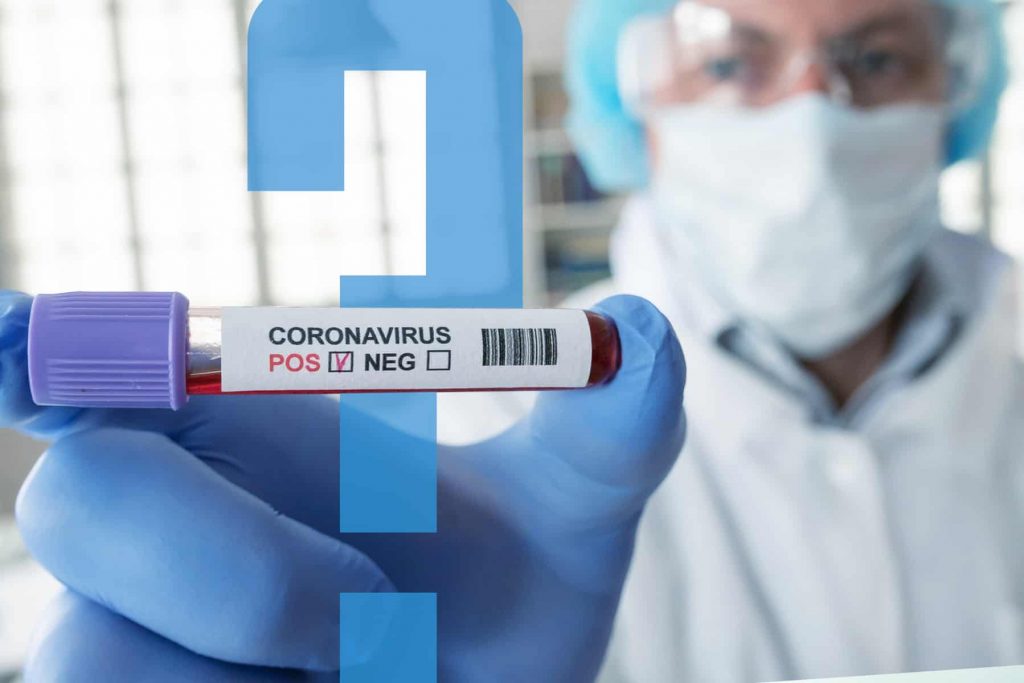Yes. Well…probably or maybe. For many western medical professionals, this is the first time and perhaps only time they will practice frontier medicine. As they risk their own to save lives on the front line of this epidemic, some feel exhilaration in reflecting on the extraordinariness that they find themselves in treating a modern, incurable plague.
Though it is not an equal comparison, it is at least relatable to legal professionals who typically may not swim in the lanes of novel law, but used to the routine and FAQ of clients. As a business law firm, we have been incredibly busy and in a way practicing our own version of frontier law.
There is no legal playbook for how employers should respond to COVID-19. Like much new law (and new medicine), we must derive our untested, theoretical conclusions.
Therefore, a disclaimer…I think this will be proved correct by standards determined by legislation or regulation, but until then, it is untested and comes with risk; if you run a business–you must test your employees routinely for COVID-19.
Updates Since Original Publishing
April 23, 2020: Straight from the horse’s mouth (EEOC): “…employers may take steps to determine if employees entering the workplace have COVID-19 because an individual with the virus will pose a direct threat to the health of others. Therefore an employer may choose to administer COVID-19 testing to employees before they enter the workplace to determine if they have the virus.”
June 15, 2020: Been asked a few interesting questions since writing this article.
First, can an employer require an employee to get tested for COVID-19 at their own expense? As to who pays for it, state law is going to definitely kick-in. For the most part, if testing is pre-employment, like a drug test, states often allow employers to require prospective employees to pay for the cost and time of the test, but this is not the case for current employees. From a practical perspective, the cost should be covered and are available for free in many cities in the country as of today.
Second, can employers test employees who are currently working that show no symptoms? EEOC’s guidance seems clear you can require an employee to get tested prior to coming back to work after a stay-at-home order, exposure to a COVID-19 case, or if the employee had previously been sick with COVID-19 or COVID-19-like symptoms. EEOC also recommends to follow CDC guidelines and specifically address being able to do temperature checks and testing before coming to work.
A New Disease
First, let’s understand why this is a novel legal issue. We are dealing with a novel coronovirus, i.e. a new disease previously unknown. It is not like other communicable diseases like HIV, which can only be spread through specific activities through certain bodily fluids. It is also not like the flu with COVID-19 studies showing estimated mortality rate and ease of spread far greater than the worst seasonal flus.
For some that are infected, little to no symptoms may occur. Disconcertingly, these individuals may just as easily (or possibly even more so) spread the virus to others, with a specific concern to high-risk individuals. Those high risk individuals are not just the old, but the unseen persons who may have underlying health conditions, not otherwise known to an employer or coworker.
The virus is said to possibly spread merely from speaking close to one another and low-risk individuals are not invincible as there is still a significant population, though small in proportion, for whom without any known comorbidity experience a hospital bed and in some cases even death.
So, when I posed this question to colleagues on legal forums, forgive me for dismissing comments that theorize risks of discrimination lawsuits because antibodies tests would favor those under the age of 40 or that testing would be an invasion of privacy. This disease discriminates on its own accord against the elderly and immune deficient. Unlike those hypothetical questions that would never come to pass those same attorneys made in law school, this is real with real consequences.
Employer Coordinated Testing
For weeks, essential industries have “tested” employees for symptoms by a simple temperature check. For some reason I tend to imagine some HR representative standing at the entrance of an office building putting their hand on the forehead of each person that enters. It turns out that companies are getting much more sophisticated by using thermal cameras to detect fevers. Of course, fever or symptom testing is a limited way to stop the spread.
Employers are now making available, what otherwise would be limited, testing of COVID-19 using both the polymerise chain reaction (PCR) and antibody serological testing that detects both whether you are currently infected but also whether you may have been previously infected.
As of the original publishing date of this piece, the available antibody tests seem to fall incredibly short to accurately determining and predicting immunity.
Testing in the Workplace
Employer-based testing is not new. Routine drug testing of employees for certain companies began in the mid-1980’s. State laws typically allow employers to require and even administer drug tests for prospective employees given they are conducted with certain qualifications and restrictions. These are tested (no pun intended) policies that are designed and legally justified in order to create a safe work environment. Why should COVID-19 testing be any different?
Drug testing for current employees requires a different analysis, however. Some states require some compelling reason to test because of either suspicion of drug use that is affecting job performance and/or safety. Other states have no restrictions or are extremely limited in certain circumstances. These varying laws are a reflection of each state’s balancing of employee privacy and workplace safety. You should anticipate that your state will have similar tolerances to employer mandated testing.
Vaccinations in the Workplace
In 2019, clusters of measles outbreaks popped up leading to some employers covering the cost and hiring a third party to administer measles vaccinations on site as an offering to their employees. This may become more relevant if and when a vaccine is developed. [please contact me to remind me to update this section once a vaccine is approved]
Workplace Safety
It is perhaps easy to say that safety trumps privacy, but the application of this issue is not black and white. For example, testing for the flu in the workplace has never been an issue, yet tens of thousands of people die just in the United States due to seasonable flu. You would have a ruckus if employers started mandating flu testing or if they start requiring a negative test to return to work.
COVID-19 is not the flu and until there is a vaccine, it is unlikely that your workers, customers, and their families will feel comfortable or safe without significant precautions. Active testing not only gives the assurances everyone needs, but also lends itself to actual safety.
So, where is the line? Sure an employer has to maintain a safe work environment under OSHA, but most states require workers compensation insurance that shields employers from significant liability. It is not clear what the standard will become, but I would keep an eye on OSHA’s dedicated page to COVID-19. I suspect they will set a low standard and seems unlikely they would mandate testing on a national level.
Already workers deemed essential have complained of not having adequate safety protocols, whether that is PPE or unnecessary interaction with other people. Similarly, when business reopen, employers will be confronted as to why they are not asking their employees to test?
Voluntary versus Mandatory Testing
In the last week, governors around the country discussed their plans or lack thereof to “open up” the economy. Governor Abbot of Texas even created “Strike Force to Open Texas“. The theoretical legal question whether to start testing employees has leaped from hypothetical to real. Though mandatory testing (assuming tests are available) makes sense for the benefit of the whole, it is without doubt that there are some that would object to an employer-mandated testing policy. No company seems to want to be the first without some clear guidance from regulatory authorities or a legislative act that immunizes an employer from liability. I do not blame them.
A lawyer’s advice is going to opt for a volunteer program that “highly encourages” testing rather than any policy that comes with teeth for non-compliance. Adverse action against an employee who does not take a test could be justified for reasons discussed, but again this is an untested specific hypothetical. On the other hand, a voluntary program may jeopardize the legal basis of a medical inquiry under the American Disabilities Act (ADA) if such positive testing would result in some kind of “adverse” action against an employee, i.e. sending the employee home to quarantine.
I have been giving the lawyer answer above; I am a lawyer after all, but the correct advice should be mandatory testing, but the testing resources, the law, our political leaders, and regulators have been too slow to adapt. Employers are left to lead and some are going to have to take some risks for their own sake and for the sake of other businesses who may not be in the position to do so.
Ready to Implement a Testing Policy?
Hold up. Check The date of this post, read the disclaimers, and call a lawyer in your state. This is novel, remember? The last thing you want to do is read something online and implement it. Every situation is different, and we didn’t begin to cover how to actually implement a testing policy, whether mandatory or voluntary. As the law changes, disease mutates, science is explored and society catches up to a new normal, I’ll try my best to update this with labeled and dated edits.


![Unraveling the Workforce: Navigating the Aftermath of Mass Layoffs [e322]](https://www.pashalaw.com/wp-content/uploads/2023/07/Untitled-design-23-1024x723.png)
![Return to the Office vs. Remote: What Can Employers Legally Enforce? [e321]](https://www.pashalaw.com/wp-content/uploads/2023/01/Pasha_LSSB_321_banner-1024x723.jpg)



![California v. Texas: Which is Better for Business? [313]](https://www.pashalaw.com/wp-content/uploads/2021/07/Pasha_LSSB_CaliforniaVSTexas-1024x723.jpg)





![Employers vs. Employees: When Are Employment Restrictions Fair? [e318]](https://www.pashalaw.com/wp-content/uploads/2022/05/Pasha_LSSB_EmployeesVsEmployers_banner-1-1024x723.jpg)




![Law in the Digital Age: Exploring the Legal Intricacies of Artificial Intelligence [e323]](https://www.pashalaw.com/wp-content/uploads/2023/11/WhatsApp-Image-2023-11-21-at-13.24.49_4a326c9e-300x212.jpg)
![Unraveling the Workforce: Navigating the Aftermath of Mass Layoffs [e322]](https://www.pashalaw.com/wp-content/uploads/2023/07/Untitled-design-23-300x212.png)
![Return to the Office vs. Remote: What Can Employers Legally Enforce? [e321]](https://www.pashalaw.com/wp-content/uploads/2023/01/Pasha_LSSB_321_banner-300x212.jpg)
![Explaining the Hans Niemann Chess Lawsuit v. Magnus Carlsen [e320]](https://www.pashalaw.com/wp-content/uploads/2022/10/LAWYER-EXPLAINS-7-300x169.png)
![California v. Texas: Which is Better for Business? [313]](https://www.pashalaw.com/wp-content/uploads/2021/07/Pasha_LSSB_CaliforniaVSTexas-300x212.jpg)
![Buyers vs. Sellers: Negotiating Mergers & Acquisitions [e319]](https://www.pashalaw.com/wp-content/uploads/2022/06/Pasha_LSSB_BuyersVsSellers_banner-300x212.jpg)
![Employers vs. Employees: When Are Employment Restrictions Fair? [e318]](https://www.pashalaw.com/wp-content/uploads/2022/05/Pasha_LSSB_EmployeesVsEmployers_banner-1-300x212.jpg)
![Vaccine Mandates Supreme Court Rulings [E317]](https://www.pashalaw.com/wp-content/uploads/2022/02/WhatsApp-Image-2022-02-11-at-4.10.32-PM-300x212.jpeg)
![Business of Healthcare [e316]](https://www.pashalaw.com/wp-content/uploads/2021/11/Pasha_LSSB_BusinessofHealthcare_banner-300x212.jpg)
![Social Media and the Law [e315]](https://www.pashalaw.com/wp-content/uploads/2021/10/WhatsApp-Image-2021-10-06-at-1.43.08-PM-300x212.jpeg)
![Defining NDA Boundaries: When does it go too far? [e314]](https://www.pashalaw.com/wp-content/uploads/2021/09/Pasha_LSSB_NDA_WordPress-2-300x212.jpg)
![More Than a Mistake: Business Blunders to Avoid [312] Top Five Business Blunders](https://www.pashalaw.com/wp-content/uploads/2021/06/Pasha_LSSB_Blunders_WP-1-300x212.jpg)
![Is There a Right Way to Fire an Employee? We Ask the Experts [311]](https://www.pashalaw.com/wp-content/uploads/2021/02/Pasha_LSSB_FireAnEmployee_Website-300x200.jpg)
![The New Frontier: Navigating Business Law During a Pandemic [310]](https://www.pashalaw.com/wp-content/uploads/2020/12/Pasha_LSSB_Epidsode308_Covid_Web-1-300x200.jpg)
![Wrap Up | Behind the Buy [8/8] [309]](https://www.pashalaw.com/wp-content/uploads/2020/11/Pasha_BehindTheBuy_Episode8-300x200.jpg)
![Is it all over? | Behind the Buy [7/8] [308]](https://www.pashalaw.com/wp-content/uploads/2020/09/iStock-1153248856-overlay-scaled-300x200.jpg)
![Fight for Your [Trademark] Rights | Behind the Buy [6/8] [307]](https://www.pashalaw.com/wp-content/uploads/2020/07/Fight-for-your-trademark-right-300x200.jpg)
![They Let It Slip | Behind the Buy [5/8] [306]](https://www.pashalaw.com/wp-content/uploads/2020/06/Behind-the-buy-they-let-it-slip-300x200.jpg)
![Mo’ Investigation Mo’ Problems | Behind the Buy [4/8] [305]](https://www.pashalaw.com/wp-content/uploads/2020/05/interrobang-1-scaled-300x200.jpg)
![Broker or Joker | Behind the Buy [3/8] [304] Behind the buy - Broker or Joker](https://www.pashalaw.com/wp-content/uploads/2020/04/Joker-or-Broker-1-300x185.jpg)
![Intentions Are Nothing Without a Signature | Behind the Buy [2/8] [303]](https://www.pashalaw.com/wp-content/uploads/2020/04/intentions-are-nothing-without-a-signature-300x185.jpg)
![From First Steps to Final Signatures | Behind the Buy [1/8] [302]](https://www.pashalaw.com/wp-content/uploads/2020/04/first-steps-to-final-signatures-300x185.jpg)
![The Dark-side of GrubHub’s (and others’) Relationship with Restaurants [e301]](https://www.pashalaw.com/wp-content/uploads/2015/04/When-Competition-Goes-Too-Far-Ice-Cream-Truck-Edition-300x201.jpg)
![Ultimate Legal Breakdown of Internet Law & the Subscription Business Model [e300]](https://www.pashalaw.com/wp-content/uploads/2019/05/Ultimate-Legal-Breakdown-of-Internet-Law-the-Subscription-Business-Model-300x196.jpg)
![Why the Business Buying Process is Like a Wedding?: A Legal Guide [e299]](https://www.pashalaw.com/wp-content/uploads/2019/03/futura-300x169.jpg)
![Will Crowdfunding and General Solicitation Change How Companies Raise Capital? [e298]](https://www.pashalaw.com/wp-content/uploads/2018/11/Will-Crowdfunding-and-General-Solicitation-Change-How-Companies-Raise-Capital-300x159.jpg)
![Pirates, Pilots, and Passwords: Flight Sim Labs Navigates Legal Issues (w/ Marc Hoag as Guest) [e297]](https://www.pashalaw.com/wp-content/uploads/2018/07/flight-sim-labs-300x159.jpg)
![Facebook, Zuckerberg, and the Data Privacy Dilemma [e296] User data, data breach photo by Pete Souza)](https://www.pashalaw.com/wp-content/uploads/2018/04/data-300x159.jpg)
![What To Do When Your Business Is Raided By ICE [e295] I.C.E Raids business](https://www.pashalaw.com/wp-content/uploads/2018/02/ice-cover-300x159.jpg)
![General Contractors & Subcontractors in California – What you need to know [e294]](https://www.pashalaw.com/wp-content/uploads/2018/01/iStock-666960952-300x200.jpg)
![Mattress Giants v. Sleepoplis: The War On Getting You To Bed [e293]](https://www.pashalaw.com/wp-content/uploads/2017/12/sleepopolis-300x159.jpg)
![The Harassment Watershed [e292]](https://www.pashalaw.com/wp-content/uploads/2017/12/me-2-300x219.jpg)
![Investing and Immigrating to the United States: The EB-5 Green Card [e291]](https://www.pashalaw.com/wp-content/uploads/2012/12/eb-5-investment-visa-program-300x159.jpg)
![Responding to a Government Requests (Inquiries, Warrants, etc.) [e290] How to respond to government requests, inquiries, warrants and investigation](https://www.pashalaw.com/wp-content/uploads/2017/10/iStock_57303576_LARGE-300x200.jpg)
![Ultimate Legal Breakdown: Employee Dress Codes [e289]](https://www.pashalaw.com/wp-content/uploads/2017/08/Ultimate-Legal-Breakdown-Template-1-300x159.jpg)
![Ultimate Legal Breakdown: Negative Online Reviews [e288]](https://www.pashalaw.com/wp-content/uploads/2017/06/Ultimate-Legal-Breakdown-Online-Reviews-1-300x159.jpg)
![Ultimate Legal Breakdown: Social Media Marketing [e287]](https://www.pashalaw.com/wp-content/uploads/2017/06/ultimate-legal-breakdown-social-media-marketing-blur-300x159.jpg)
![Ultimate Legal Breakdown: Subscription Box Businesses [e286]](https://www.pashalaw.com/wp-content/uploads/2017/03/ultimate-legal-breakdown-subscription-box-services-pasha-law-2-300x159.jpg)
![Can Companies Protect Against Foreseeable Misuse of Apps [e285]](https://www.pashalaw.com/wp-content/uploads/2017/01/iStock-505291242-300x176.jpg)
![When Using Celebrity Deaths for Brand Promotion Crosses the Line [e284]](https://www.pashalaw.com/wp-content/uploads/2017/01/celbrity-300x159.png)
![Are Employers Liable When Employees Are Accused of Racism? [e283] Racist Employee](https://www.pashalaw.com/wp-content/uploads/2016/12/Are-employers-liable-when-an-employees-are-accused-of-racism-300x159.jpg)
![How Businesses Should Handle Unpaid Bills from Clients [e282] What to do when a client won't pay.](https://www.pashalaw.com/wp-content/uploads/2016/12/How-Businesses-Should-Handle-Unpaid-Bills-to-Clients-300x159.png)
![Can Employers Implement English Only Policies Without Discriminating? [e281]](https://www.pashalaw.com/wp-content/uploads/2016/11/Can-Employers-Impliment-English-Only-Policies-Without-Discriminating-300x159.jpg)
![Why You May No Longer See Actors’ Ages on Their IMDB Page [e280]](https://www.pashalaw.com/wp-content/uploads/2016/10/IMDB-AGE2-300x159.jpg)
![Airbnb’s Discrimination Problem and How Businesses Can Relate [e279]](https://www.pashalaw.com/wp-content/uploads/2016/09/airbnb-300x159.jpg)
![What To Do When Your Amazon Account Gets Suspended [e278]](https://www.pashalaw.com/wp-content/uploads/2016/09/What-To-Do-When-Your-Amazon-Account-Gets-Suspended-1-300x200.jpg)
![How Independent Artists Reacted to Fashion Mogul Zara’s Alleged Infringement [e277]](https://www.pashalaw.com/wp-content/uploads/2016/08/How-Independent-Artists-Reacted-to-Fashion-Mogul-Zaras-Alleged-Infringement--300x159.jpg)
![Can Brave’s Ad Replacing Software Defeat Newspapers and Copyright Law? [e276]](https://www.pashalaw.com/wp-content/uploads/2016/08/Can-Braves-Ad-Replacing-Software-Defeat-Newspapers-and-Copyright-Law-300x159.jpg)
![Why The Roger Ailes Sexual Harassment Lawsuit Is Far From Normal [e275]](https://www.pashalaw.com/wp-content/uploads/2016/07/WHY-THE-ROGER-AILES-SEXUAL-HARASSMENT-LAWSUIT-IS-FAR-FROM-NORMAL-300x159.jpeg)
![How Starbucks Turned Coveted Employer to Employee Complaints [e274]](https://www.pashalaw.com/wp-content/uploads/2016/07/iStock_54169990_LARGE-300x210.jpg)
